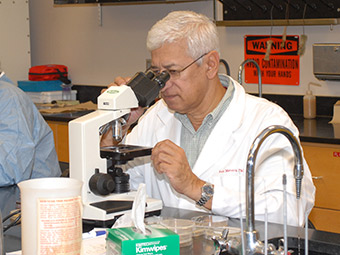Document Type
Article
Publication Date
5-2016
Abstract
In 1998, a strategy document outlining the most pressing issues facing the conservation of freshwater mussels was published (NNMCC 1998). Beginning in 2011, the Freshwater Mollusk Conservation Society began updating that strategy, including broadening the scope to include freshwater snails. Although both strategy documents contained 10 issues that were deemed priorities for mollusk conservation, the identity of these issues has changed. For example, some issues (e.g., controlling dreissenid mussels, technology to propagate and reintroduce mussels, techniques to translocate adult mussels) were identified in the 1998 strategy, but are less prominent in the revised strategy, due to changing priorities and progress that has been made on these issues. In contrast, some issues (e.g., biology, ecology, habitat, funding) remain prominent concerns facing mollusk conservation in both strategies. In addition, the revised strategy contains a few issues (e.g., newly emerging stressors, education and training of the next generation of resource managers) that were not explicitly present in the 1998 strategy. The revised strategy states that to effectively conserve freshwater mollusks, we need to (1) increase knowledge of their distribution and taxonomy at multiple scales; (2) address the impacts of past, ongoing, and newly emerging stressors; (3) understand and conserve the quantity and quality of suitable habitat; (4) understand their ecology at the individual, population, and community levels; (5) restore abundant and diverse populations until they are self-sustaining; (6) identify the ecosystem services provided by mollusks and their habitats; (7) strengthen advocacy for mollusks and their habitats; (8) educate and train the conservation community and future generations of resource managers and researchers; (9) seek long-term funding to support conservation efforts; and (10) coordinate development of an updated and revised strategy every 15 years. Collectively addressing these issues should strengthen conservation efforts for North American freshwater mollusks.
Recommended Citation
"A National Strategy for the Conservation of Native Freshwater Mollusks," Freshwater Mollusk Biology and Conservation 19(1), 1-21, (1 May 2016). https://doi.org/10.31931/fmbc.v19i1.2016.1-21
Publication Title
Freshwater Mollusk Biology and Conservation
DOI
10.31931/fmbc.v19i1.2016.1-21



Comments
© Freshwater Mollusk Conservation Society 2016. Original published version available https://doi.org/10.31931/fmbc.v19i1.2016.1-21